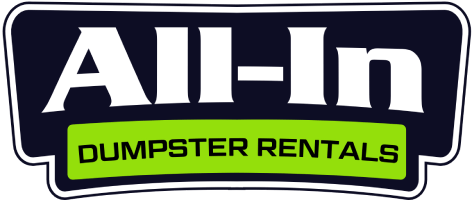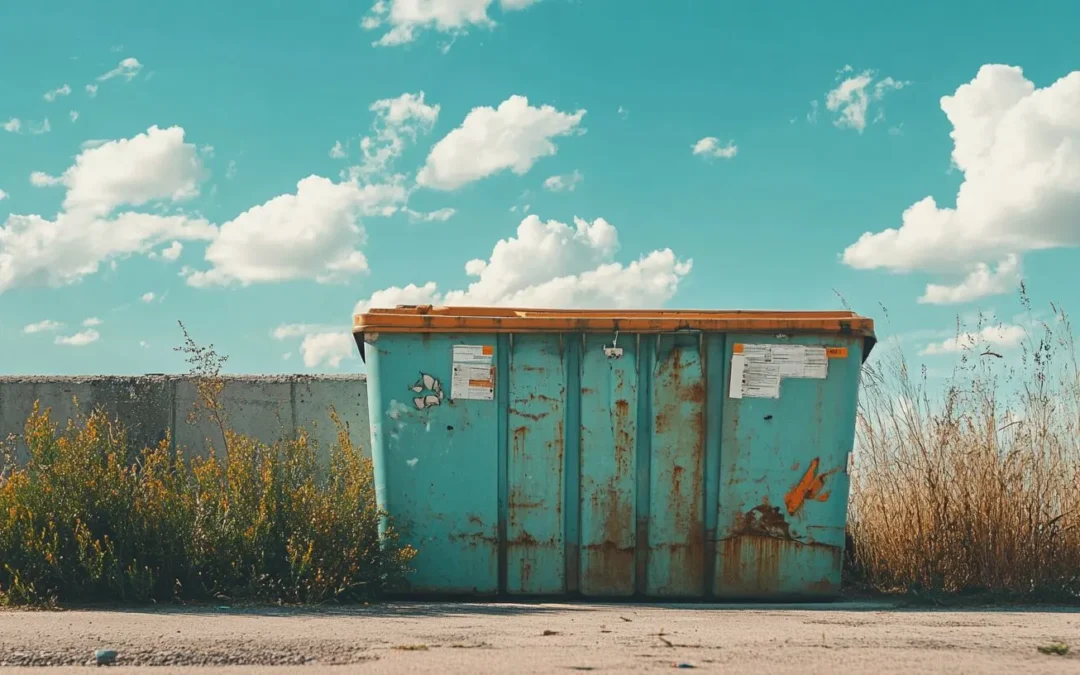In the shadow of the Blue Ridge Mountains, Arden’s transformation from sleepy suburb to sustainability pioneer represents one of Western North Carolina’s most remarkable environmental success stories. Once characterized by conventional waste practices, this community between Asheville and Hendersonville has reimagined disposal through an innovative blend of practical solutions and ecological vision—with local dumpster services playing a surprisingly central role in this evolution.
The Arden Green Revolution: Why This Community Leads in Sustainable Waste Practices
Unlike communities where environmental initiatives remain largely aspirational, Arden has translated sustainability values into concrete actions that reshape daily life. Three distinctive factors drive this remarkable transition:
First, the community’s geographic setting creates immediate environmental accountability. Straddling two critical watersheds—the French Broad and Mills River basins—Arden residents experience direct connections between waste decisions and ecosystem health. When spring rains wash construction debris into local streams, the impacts appear not in abstract statistics but in visible changes to beloved waterways.
Second, Arden’s demographic profile uniquely supports sustainability innovation. The community’s blend of young families seeking healthy environments, retirees investing in community legacy, and environmental professionals brings diverse perspectives to waste challenges while maintaining shared environmental values.
Third, Arden’s governance structures encourage ecological experimentation through innovative partnerships rather than rigid regulations. This collaborative approach allows creative waste solutions to emerge from community needs rather than administrative mandates.
“Arden demonstrates how ecological commitment can transform everyday practices when supported by appropriate infrastructure,” explains Dr. Eleanor Fraser, environmental policy professor at UNC Asheville. “Rather than viewing sustainability as sacrifice, this community has discovered authentic benefits from reimagined waste approaches.”
From Trash to Treasure: Arden’s Waste Transformation Projects
Across Arden, innovative projects demonstrate how thoughtful waste management transforms environmental challenges into community assets.
The Royal Pines Renovation Renaissance
When twenty homes in Arden’s Royal Pines neighborhood undertook simultaneous kitchen renovations last year, residents faced a potential disposal nightmare. Instead, the neighborhood association created a pioneering material management system that diverted over 80% of project waste from landfills.
“We established a central sorting station with different designated containers for various materials,” explains neighborhood coordinator Thomas Wilson. “Wood scraps went to a local craftsman, metal components to recycling, and packaging to specialized processors. Only genuinely unusable materials entered the waste stream.”
The neighborhood’s approach transformed conventional renovation waste—typically destined for landfills—into valuable inputs for local businesses while reducing disposal costs by approximately 40%. This economic advantage helped overcome initial hesitation about the additional sorting efforts.
The School Garden Material Loop
At Glen Arden Elementary, students learn environmental principles through hands-on participation in the school’s closed-loop garden system. Using specialized collection containers, the school transforms cafeteria food scraps and yard maintenance trimmings into rich compost that nourishes vegetable gardens.
“Our students witness materials moving from apparent ‘waste’ to valuable resources,” explains science teacher Rebecca Martinez. “This tangible experience fundamentally reshapes how they understand disposal concepts.”
The program’s success has inspired seven additional schools throughout Buncombe County to implement similar systems, creating meaningful waste diversion while providing invaluable environmental education.
The Creekside Commons Construction Innovation
Developer Michael Chen faced significant waste management challenges when planning the 35-unit Creekside Commons housing development. Rather than accepting conventional construction waste metrics, Chen implemented a comprehensive materials management plan that established new standards for Arden’s building sector.
Working with construction waste specialists, Chen’s team designed a phased approach that segregated materials throughout the construction process. Dedicated containers for wood, metals, concrete, and mixed materials enabled specific handling methods for each category.
“We reduced disposal volumes by approximately 65% compared to similar developments,” Chen reports. “The approach required more planning but ultimately saved nearly $50,000 in waste management costs while significantly reducing environmental impact.”
Chen’s methods have since been adopted by three additional Arden developments, establishing new community standards for construction waste reduction.
The Infrastructure Behind Sustainable Disposal: Reimagined Dumpster Services
Arden’s waste transformation relies on specialized infrastructure that bridges the gap between environmental aspirations and practical implementation. Modern dumpster services represent the critical but often-overlooked foundation supporting the community’s sustainable material management systems.
Beyond Basic Bins: Today’s Specialized Waste Solutions
Unlike traditional “catch-all” disposal approaches, contemporary waste services in Arden offer sophisticated solutions tailored to specific material streams and project requirements.
“Today’s waste containers function more like specialized material management tools than simple disposal bins,” explains Elena Rodriguez, environmental services coordinator for Buncombe County. “Different projects require specific solutions based on waste composition, volume, and recovery potential.”
This evolution has transformed dumpster providers from basic haulers to sustainability consultants who help clients optimize material management throughout project lifecycles. For example, All-In Dumpster Rentals now offers pre-project planning sessions that identify potential reuse pathways before materials even enter the waste stream.
The Technology Transformation
Advanced technology increasingly enhances Arden’s waste management systems. For example, real-time monitoring systems track container fill levels, optimizing pickup schedules to minimize unnecessary transportation—a significant factor in waste-related carbon emissions.
Mobile applications help residents identify appropriate disposal methods for specific materials, while online exchanges connect waste generators with potential users looking for those same materials.
“The technology bridges information gaps that previously prevented optimal material management,” explains tech entrepreneur Sarah Johnson, whose WasteLink platform has facilitated over 500 material exchanges in Arden since launching last year. “When someone’s ‘waste’ becomes visible to someone who values that material, entirely new possibilities emerge.”
Economics of Sustainability: How Better Waste Management Benefits Arden’s Bottom Line
Contrary to persistent perceptions that environmental responsibility necessarily increases costs, Arden’s experience demonstrates how thoughtful waste management delivers substantial economic benefits alongside ecological improvements.
Disposal Cost Reductions
Waste diversion creates immediate financial advantages through reduced disposal fees. Heavenly Gardens Landscaping implemented systematic green waste handling last year, converting previously landfilled organic materials into valuable mulch and soil amendments.
“We reduced disposal expenses by approximately 60% while creating products we previously purchased,” reports owner David Taylor. “The equipment investment paid for itself within eight months, and we’ve since developed new revenue streams selling excess compost to local gardeners.”
This pattern repeats across Arden businesses that have implemented material-specific handling systems instead of general waste disposal—typically generating 30-50% cost reductions while sometimes creating entirely new value streams.
Property Value Enhancements
Real estate professionals report growing market premiums for properties in communities with strong environmental practices. Arden’s sustainability reputation contributes to property values that consistently outperform comparable communities with less developed environmental infrastructure.
“Buyers increasingly consider community sustainability profiles alongside traditional factors like schools and amenities,” explains realtor Jennifer Adams. “Arden’s reputation for environmental responsibility tangibly influences property values—particularly for younger buyers who prioritize ecological considerations.”
This relationship creates positive feedback loops where environmental investments generate economic returns that enable further sustainability advances—a virtuous cycle that benefits both individual properties and the broader community.
Practical Steps: Implementing Sustainable Waste Management in Your Arden Project
Translating sustainability principles into practical waste management requires specific approaches tailored to different project types. Three common scenarios demonstrate how Arden residents implement effective solutions:
Home Renovations
Kitchen and bathroom renovations generate Arden’s most common residential waste streams, presenting distinctive sustainability opportunities. Effective approaches include:
- Pre-renovation analysis – Before demolition, identify materials with reuse potential and arrange appropriate handling
- Phased removal – Schedule demolition to facilitate material separation rather than generating mixed waste
- Local redistribution – Connect with community reuse networks for fixtures, cabinets, and other salvageable components
- Appropriate containment – Select right-sized waste containers designed for renovation-specific materials
These steps typically divert 50-70% of renovation waste from landfills while often reducing project costs through avoided disposal fees and potential material resale.
Yard Transformations
Landscape projects generate substantial organic waste that represents valuable resources when properly managed. Sustainable approaches include:
- On-site processing – Convert appropriate materials into mulch or compost directly on the property
- Community composting connections – Deliver clean organics to Arden’s community composting facilities
- Exchange platforms – List excess natural materials on local exchange networks for others’ use
- Staged removal – Schedule appropriate container delivery to coincide with specific project phases
These methods typically eliminate 70-90% of landscape waste from disposal streams while generating valuable inputs for future landscape health.
Whole-House Cleanouts
Major cleaning projects present complex waste streams requiring systematic management. Effective strategies include:
- Categorized sorting – Establish distinct collection points for different material types
- Donation scheduling – Arrange specific timeframes for charitable organization pickups
- Specialized material handling – Identify items requiring particular disposal methods
- Appropriate containment timing – Schedule container delivery to align with sorting completion
This systematic approach generally diverts 40-60% of cleanout materials from waste streams while supporting community organizations through functional item donations.
Community Resources: Arden’s Environmental Support System
Beyond individual efforts, Arden residents access a robust support ecosystem that facilitates sustainable waste management through shared resources and knowledge.
The Arden Tool Library
Established in 2023, the Arden Tool Library allows residents to borrow specialized equipment for waste management projects, eliminating the need to purchase rarely-used items. The collection includes material handling tools, specialized sorting equipment, and processing machinery that enables advanced waste management without individual ownership costs.
“The library transforms what’s possible for average homeowners,” explains coordinator Michael Sanchez. “Access to professional-grade equipment makes material separation and processing feasible for projects that would otherwise default to simple disposal.”
Buncombe County’s Innovation Grants
The county’s environmental innovation program provides financial support for community waste reduction initiatives through competitive grants. Recent Arden recipients include the neighborhood composting cooperative, the construction material exchange, and the school system’s zero-waste lunch program.
“These modest investments enable significant waste reductions by addressing specific infrastructure gaps that previously prevented better practices,” explains county sustainability director Emma Rodriguez. “Each successful project becomes a demonstration model that inspires additional improvements throughout the community.”
Arden’s Next Horizon: Emerging Trends in Community Waste Management
As Arden’s sustainable waste management continues evolving, several emerging trends suggest likely development directions in coming years.
Procurement Transformation
Rather than focusing exclusively on waste management, Arden increasingly addresses upstream decisions that determine what materials eventually require handling. The recently established municipal purchasing guidelines prioritize products designed for eventual reuse or recycling—preventing waste generation through thoughtful acquisition rather than merely improving disposal.
Circular Economy Integration
Arden’s waste systems increasingly connect with broader economic models that fundamentally reimagine material flows. The emerging repair café movement provides regular events where volunteers help residents fix broken items rather than discard them, while material exchanges facilitate increasingly sophisticated resource circulation between different users.
Inter-Community Collaboration
Recognizing that material flows extend beyond municipal boundaries, Arden has established partnerships with neighboring communities to develop regional approaches to specific waste challenges. These collaborations enable specialized processing facilities that would be impractical at smaller scales while creating consistent systems that simplify proper disposal decisions.
Your Role in Arden’s Sustainable Future
Individual choices collectively shape Arden’s environmental trajectory. Every disposal decision either reinforces conventional waste paradigms or contributes to the community’s sustainability transition. By selecting appropriate waste management solutions for your specific projects, you directly influence both immediate environmental impacts and broader system development.
“The most sustainable communities develop through countless everyday decisions rather than occasional grand initiatives,” observes environmental psychologist Dr. James Peterson. “When individuals consistently make slightly better choices, remarkable transformations become possible.”
For Arden residents seeking waste management approaches aligned with both community values and practical needs, All-In Dumpster Rentals offers specialized services designed specifically for local environmental conditions. Their team can be reached at (828) 776-5517 for personalized guidance on your specific project’s requirements.
Ready to make your Arden project part of the community’s sustainability success story? Book your eco-friendly waste solution online today and contribute to Arden’s remarkable environmental transformation.

